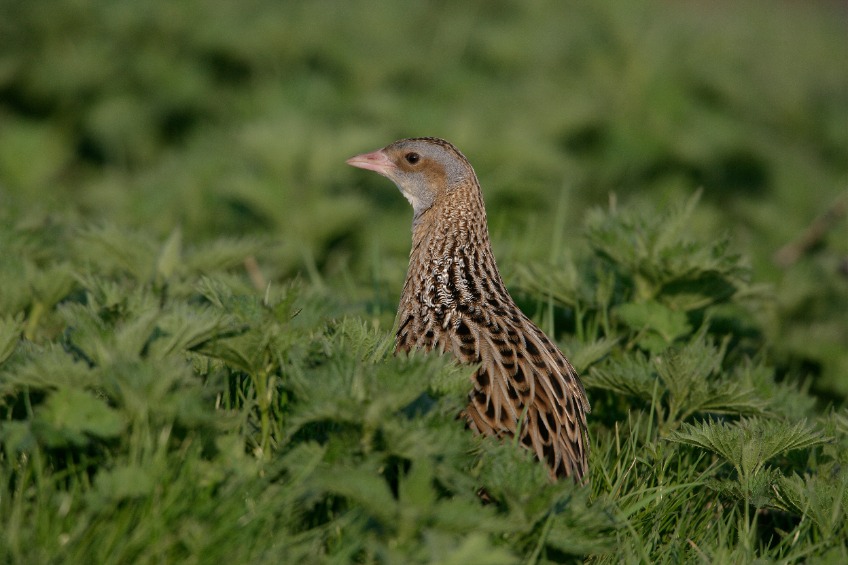
An annual survey of corncrakes in Scotland has recorded an increase in the number of calling males on Skye thanks to the help of local farmers and crofters.
RSPB Scotland’s annual survey of corncrakes recorded 14 calling males in Skye in 2022, a slight increase from the ten recorded in 2021.
The results highlight the importance of work being done by the Skye Crofting and Corncrake Partnership (SCCP), involving SAC Consulting - part of SRUC, RSPB Scotland, NFU Scotland and the Scottish Crofting Federation.
The SCCP aims to help local farmers and crofters manage their land to improve Skye’s corncrake population.
However, overall in Scotland only 824 calling males were recorded in 2022 compared to 850 in 2021, reflecting the ongoing challenges the species is facing.
While this three percent decline is smaller than some of the previous recent year on year reductions, it is a continuation of a downward trend since the record high of 1289 males in 2014.
Corncrakes are counted across 16 areas in Scotland, with surveyors listening out for the distinctive ‘crex crex’ call of the male birds. With so few corncrakes in the country, Skye’s population is vitally important.
Practical methods used on ‘high nature value’ landscapes to benefit the species include delayed mowing, corncrake-friendly mowing and leaving uncut areas of grassland on field margins to provide cover for birds.
Methods also include curtailing grazing to preserve areas of tall vegetation in spring and summer to allow birds to nest and raise broods; and establishing clumps of tall plants such as iris, nettles, meadowsweet, cow parsley or hogweed.
Janette Sutherland, agricultural consultant with SAC Consulting who facilitates the SCCP, said the support given to farmers through agri-environment schemes over the past 25 years had been 'key' to the survival of the UK corncrake population.
"With such a small population, working in partnership is vitally important to their future survival," she added.
“The corncrake population in Skye is instrumental in expanding its geographical range to mainland areas such as Lochalsh and Glenelg so this small increase in numbers is a positive sign."
Chris Bailey, RSPB Scotland’s advisory manager, said it was vital that the farmers and crofters whose land they depend on were 'supported properly'.
“Since a new system of payments won’t be in place until 2026, the government must continue to provide adequate funding in the meantime for the agri-environment-climate scheme which supports the management of farmland for corncrakes and other wildlife.”
